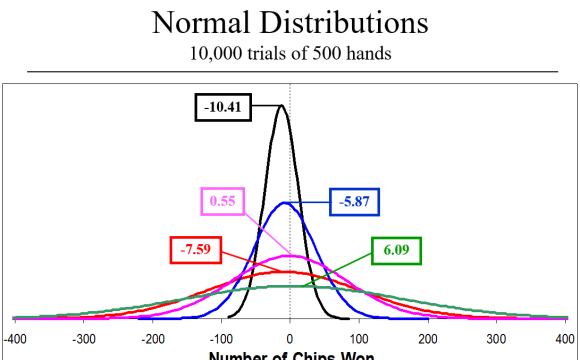Blackjack is a casino game characterized by dependent trials that set itself apart from pure chance-based games, such as slots or roulette. As cards are taken away from the deck, their probability of getting a blackjack decreases with every card removed from it.
Understanding blackjack odds can help players improve their odds of success and enhance the enjoyment of the game.
Basic strategy
Blackjack is one of the casino games with the lowest house edge. But by employing smart strategies and employing proper decision-making processes at the table, its odds can further decrease and swing in your favour. In order to improve decision-making skills at the table and improve decision making skills overall, it is crucial that you know how to calculate blackjack probability and odds accurately.
The basic blackjack strategy chart is created through calculations for every situation that arises in the game, detailing which moves should be made when, depending on your hand and dealer upcard value – for instance if your 16 against 2 against the dealer is equal in value you would hit when your 16 is worth equal or greater than 2. Additionally, this chart depicts busting probability as well as that for exceeding 21 in a hand; Julian Braun conducted simulations on deck composition that revealed how an abundance of high cards favoured players – his research led to numerous card counting strategies used today by blackjack players today.
Insurance bets
Insurance bets in blackjack are side bets that pay out 2:1 in the event that the dealer holds a blackjack. Although these insurance bets increase the house edge of the game, it should only be made if your hand value is strong enough and if you feel certain the dealer possesses an ace card.
Because the odds of blackjack hands depend on dependent trials, unlike other casino games which rely solely on chance, players should avoid betting statically – they must learn how to adapt according to different situations. Experienced blackjack players who know basic strategy and card counting can recognize when odds favor their hands and capitalize on opportunities by increasing profits while decreasing losses; taking insurance policies may or may not be wise depending on your personal risk tolerance.
Splitting pairs
Splitting pairs is a vital strategy to combating long-term losses at blackjack. To do so, place an additional bet equal to your original stake after the dealer has dealt a pair of cards; this doubles your risk; however it increases the possibility of landing two or more face value cards and winning multiple bets simultaneously.
The correct basic strategy for splitting deuces depends on both the game you are playing and its rules. For example, in games which permit doubling after splitting (DAS), splitting deuces against strong upcards is usually more profitable than hitting. On the other hand, in DAS-prohibiting games (NDAS), hitting is usually more advantageous.
Splitting aces
Blackjack is a game of skill and players must understand when to split pairs. For example, when the deck count drops below zero, splitting eights might make sense as more low cards than high ones remain; this would enable a player to double their bet and create two winning hands; but if the dealer holds any eight, nine or 10 cards it would mean both hands would lose.
Calculating the odds of getting a natural Blackjack (21), we employ this formula: exactly one success in two trials (two-card hands). This gives us an estimated probability of 128 / 2652 = 4.83% for getting this number of cards; odds may differ for every game depending on future cards of dealer and every card dealt from him/her.
Double exposure
Double Exposure Blackjack (DEB) is a variation of blackjack in which all dealer cards are exposed from the outset, giving players more information on their hand value and making decisions accordingly. While playing this variant requires greater knowledge and heuristics to navigate successfully, as well as no options such as taking insurance or surrendering being available, its main benefit lies in offering greater information for decision-making purposes.
Basic rules remain unchanged; however, the house edge increases as players cannot purchase insurance and lose on pushes. Still, if you enjoy blackjack and understand its odds well enough to predict certain outcomes then this game should definitely be given a try – there are charts providing probabilities of each dealer upcard so you can make informed decisions when to Hit or Stand.









